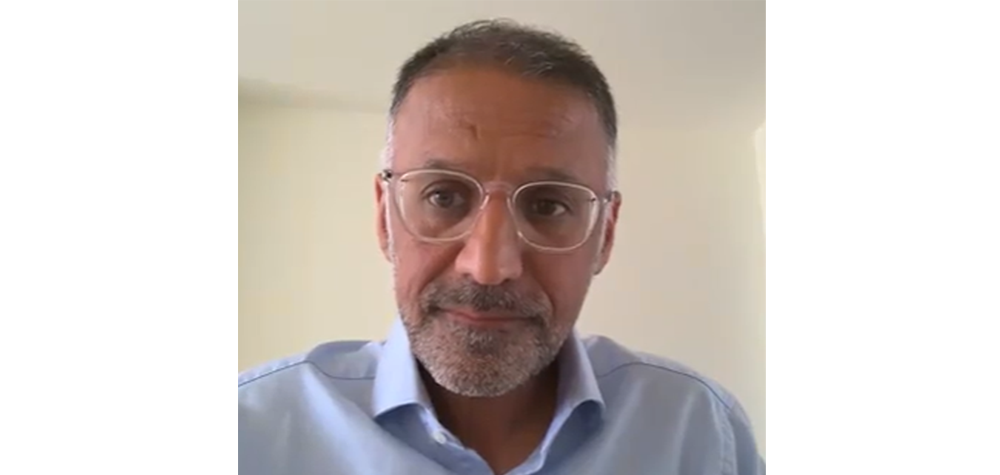Photo: Parvais Jabbar, Co-Executive Director, Death Penalty Project
by Kristen Ku
BELIZE CITY, Tues. July 30, 2024
Approximately 75% of the world has abolished the death penalty or has stopped carrying out executions, which is considered Abolition de Facto (ADF)—meaning that no execution has taken place in that particular country for more than a decade.
Now, with 40 years having passed since its last execution, Belize joins the 40 countries that fall under ADF, yet is the only nation in Central America that still holds onto the death penalty.
In a co-written article, Belizean Senior Counsel, Godfrey Smith, and a human rights attorney from the Death Penalty Project, Parvais Jabbar, argued that the death penalty should be abolished in Belize.

They believe that a resumption, such as what was discussed in a recent Amandala Editorial, entitled “Sacrifice—the Death Penalty Option,” should not be the path in which the country should venture.
The editorial, dated June 18, noted that although not all murders in Belize end up in conviction due to how easy it has become for accused murderers to walk free, threaten witnesses, or simply serve time before being released again, those who normally are convicted tend to automatically be given life sentences. The writer of the editorial believes that the death penalty should be considered as an option, not as an act of revenge, but as a sacrifice for the life of the community and its children.
“There can be no peace without justice, and it may be time that we seriously consider, though not necessarily making it automatic upon conviction, a return to the death penalty as an option upon conviction for murder. The reality of such an existing option would get the attention of reckless young men who have been operating with a sense of impunity and comfort with only the risk of possibly ‘spending time’ when they have willfully ended the time on earth of another person,” the editorial stated.
However, Jabbar points to perhaps one of Belize’s worst 2012 murder cases, that of Jared Ranguy who murdered his sister, mother, and stepfather in cold blood while they slept, without any provocation. The case that went on for over 11 years, finally saw Ranguy plead guilty and sentenced to 3 life sentences with the possibility of parole after 40 years.
Despite the horrific nature of the crime, they believe that he was still not given the death penalty due to the prospects of his rehabilitation. “It’s not just a personal opinion of a judge or people being soft on crime; it’s applying the law and saying, ‘Is the death penalty appropriate or is there any other punishment that can be used?’” stated Jabbar in an interview.
He added that instead of pushing for the resumption of executions, the better question to ask would be: how can the criminal justice system be improved and increase the conviction and detection rates without resorting to state killings?
Research and surveys conducted by the Death Penalty Project show that public support for the death penalty is not as strong as assumed. In Zimbabwe, while many initially supported the death penalty, they agreed to support their government if it was abolished. In the Eastern Caribbean, jurors decided against imposing the death penalty when given the choice. This indicates that leadership can play a crucial role in abolishing the death penalty in Belize.
Smith argues that keeping the death penalty on the books is irrelevant and senseless for the justice system, given that it has been 20 years since the last death sentence was handed down, and over 10 years since anyone was on death row. “We advocate that time, energy, and resources are better spent on going after the true causes of crime, rather than clinging to the hope that executions will somehow reduce crime when the evidence so far is that it does not,” Smith explained. “Eliminating people through the death penalty, executing them, does not attack the problem at its roots,” he said.
Smith and Jabbar made it clear that their stance on abolishing the death penalty does not mean that convicts should go unpunished. Instead, they believe that alternative punishments are much more effective in addressing crime.
(AMANDALA Ed. Note: It is appreciated that the learned attorneys have weighed in on this critical issue, although they fell short of indicating what “alternative punishments” they have in mind. We have not called for any “automatic” death penalty for murder, but, as quoted above from our editorial, we think just having the “option” needs to be given serious consideration because we have a big problem where our judicial system has been to some extent overwhelmed. We will address this issue further in due course.)

